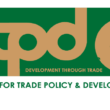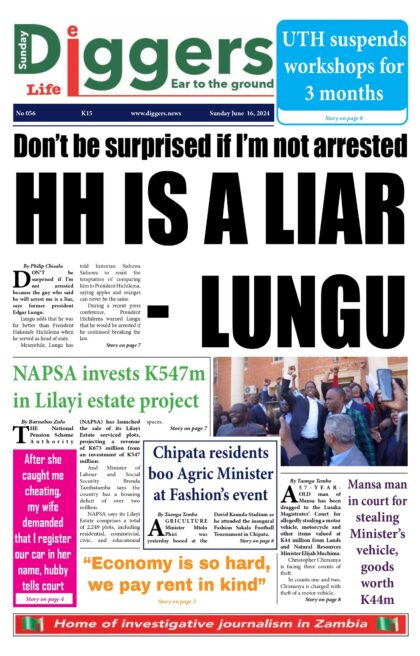In last week’s piece, we discussed some of the inadequacies of the Companies Act 2017 (“the Act”). This week, we continue the discussion as we look at some of the global guidelines that can be incorporated into the identified provisions of the Act to enhance beneficial ownership transparency in Zambia. We will focus on the guidelines that specifically address beneficial ownership transparency under the Financial Action Task Force (FATF), Open Ownership Principles (OOP), and Extractives Industries Transparency Initiative (EITI) requirements. These guidelines are important as they help countries prevent illicit activities by companies. Specifically, they provide guidance on drafting regulatory frameworks to ensure they adequately cover all aspects of beneficial ownership.
To start with, the FATF is comprised of recommendations aimed at fighting money laundering, terrorist financing, and proliferation financing. Recommendation 24 focuses on beneficial ownership transparency; it requires countries to maintain adequate, accurate, and current beneficial ownership information and control of legal persons. This information needs to be accessible by competent authorities.
The other guidelines under consideration are the OO Principles. These are nine interrelated guidelines that guide the beneficial ownership implementation. These principles include robust definition, coverage, detail, central register, accessible, structured data, verification, up-to-date data, as well as sanctions and enforcement. They aim to ensure that actionable, reliable, and timely beneficial ownership information is available.
Lastly, the EITI requirements promote the openness and accountability of mineral resources, oil, and gas. They require the disclosure of information in the extractive industry from extraction to the government’s utilization of revenues and how the public benefits. While the EITI praised Zambia for demonstrating strong commitment to EITI implementation, they also urged Zambia to fulfil requirement 2.5; which requires all companies to disclose beneficial ownership information comprehensively and reliably. However, Zambia lags in effective implementation of this requirement.
Considering the above, the following are some of the proposed solutions for enhanced implementation of beneficial ownership transparency in Zambia:
1. To address the issue of the right to privacy vis-à-vis disclosure, PACRA should only publish enough personally identifying information while withholding sensitive information (birthdate and residential address) for access by law enforcement only for official purposes. The other solution is to ensure that there is adequate sensitization on the need for disclosure of this information. It should not be presumed that a person seeking to incorporate a company is aware of the importance of disclosure, especially that beneficial ownership requirement is embedded in legal documents which are hardly understood by a layman.
2. Regarding the issue of lack of sanctions and strict enforcement; there is a need to amend Section 12(3) (e) of the Act to align it with one of the OO Principles (i.e. sanctions and enforcement), and FATF recommendation 35 which require effective, proportionate, dissuasive, and enforceable sanctions. These sanctions should be applicable to beneficial owners, declaring person, and company officers. Therefore, specific sanctions coupled with a legally mandated authority with resources to ensure effective enforcement should be included in the Act to strengthen the implementation of beneficial ownership.
3. Section 124(1) should be amended to provide measures through which PACRA should verify information, for instance, comparing information on the identification documents and information being submitted. For verification, PACRA only relies on information submitted during incorporation, this contradicts the discussed guidelines as they demand for accurate and verified information. Hence, to avoid collecting false or misleading information, PACRA should ensure that before registration is approved and certificate is issued, information submitted is true and accurate.
4. Additionally, the OO principles require that the registry should have Up-to-date beneficial ownership information. Thus, Section 270 (3) should be amended to make it clear that not only public companies but also all other companies should update beneficial ownership information when filing annual returns. The section should also include enforceable sanctions where a company does not provide updated information.
5. Accessibility of beneficial ownership is not complete if there is a fee attached to this need. Therefore, accessibility of beneficial ownership information should be unlimited by removing the K90 fee. This proposed solution will align with guidelines on accessibility, which prohibits restrictions regarding access to information. To further improve accessibility, the government should invest in advanced technology and create an effective online mechanism that stores information on all existing companies across different industries.
In conclusion, Zambian laws should be amended to ensure that they comprehensively address hindrances to beneficial ownership implementation. This will bring about fair market competition and deter illicit financial activities.
About the Author:
Lucy P Musonda is an Advocate of the High Court of Zambia-AHCZ, she currently works for the Centre for Trade Policy and Development as a Legal Researcher. She holds an LLB from the University of Zambia and currently pursuing an MBA at Heriot-Watt University, Edinburgh School of Business.









One Response
ai65x2